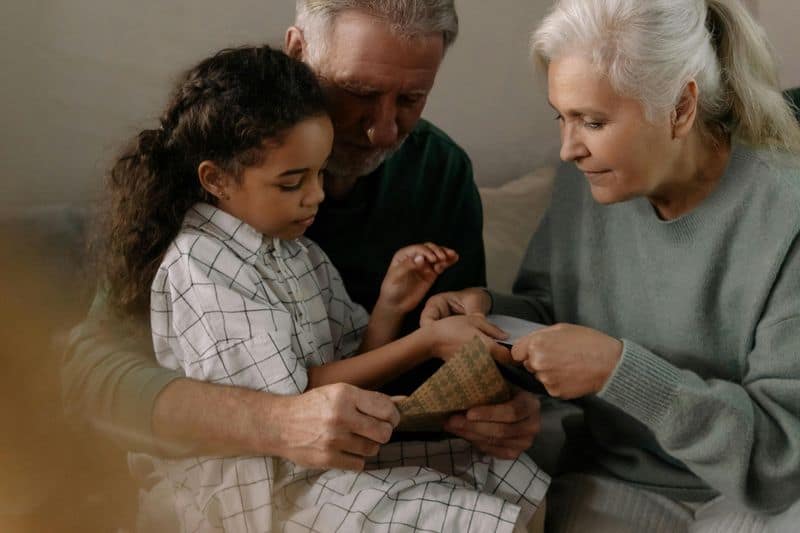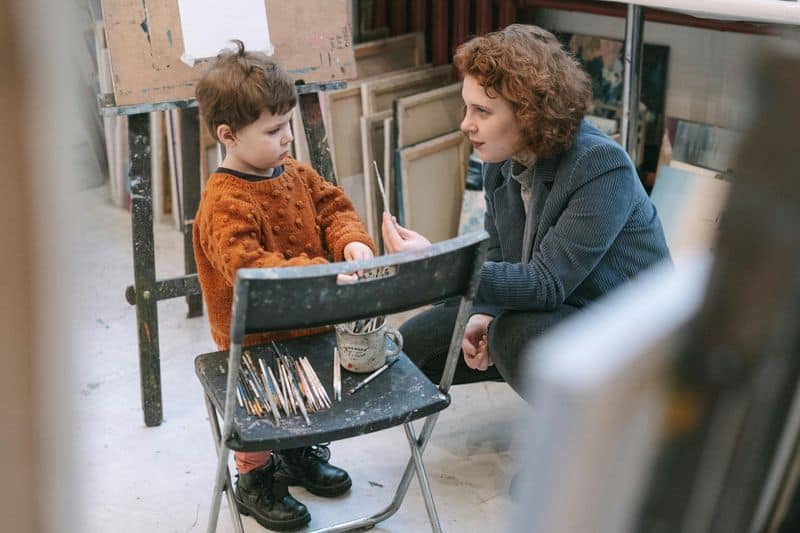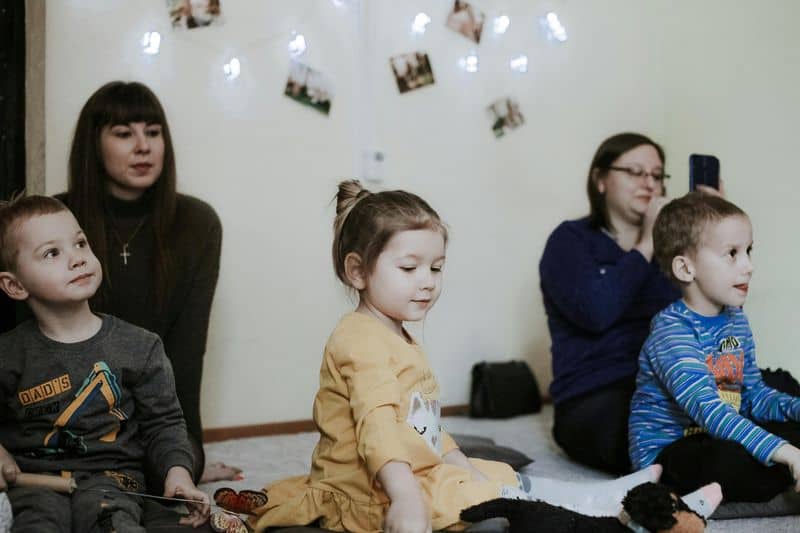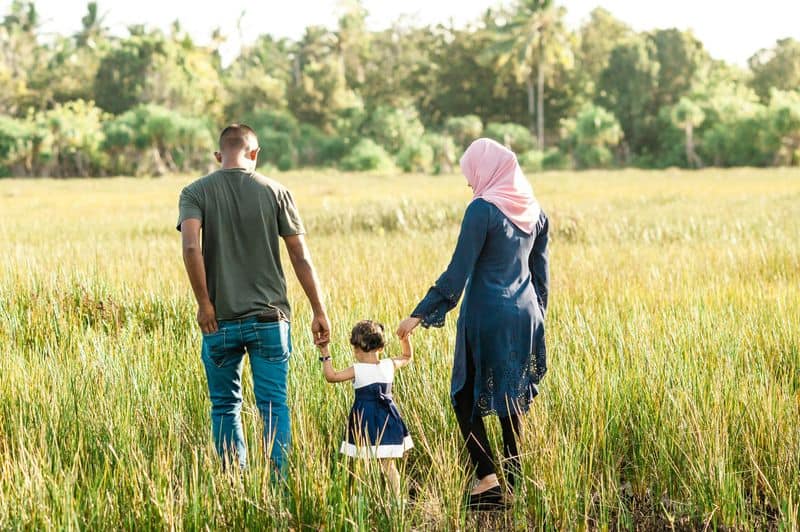Raising respectful children doesn’t happen by accident. It takes intentional effort, consistency, and a willingness to model the behaviors you want to see.
When parents focus on teaching values like kindness, empathy, and accountability, they set their kids up for success in relationships and life.
Here are ten powerful strategies that help parents raise children who truly understand what respect means.
1. Lead by Example Every Single Day
Children are natural mimics who absorb everything around them like sponges. When you treat others with kindness, honesty, and patience, your kids notice and start copying those behaviors without even realizing it. They watch how you speak to the cashier, how you handle frustration, and how you treat your partner.
Being a living example means your actions speak louder than any lecture ever could. If you want your child to say “please” and “thank you,” make sure those words flow naturally from your own mouth. Respect isn’t taught through words alone—it’s caught through consistent, genuine behavior that kids witness daily in their most important role models.
2. Set Clear and Consistent Boundaries
Kids actually crave structure more than we realize. When boundaries are clear and enforced consistently, children feel secure and understand what’s expected of them. This doesn’t mean being rigid or harsh—it means following through on what you say.
Imagine telling your child bedtime is at 8 p.m., but sometimes letting them stay up until 10 p.m. without reason. That inconsistency creates confusion and teaches them that rules are negotiable. Instead, establish reasonable limits and stick to them.
Consistency builds trust and teaches children that respecting rules and authority isn’t optional. Over time, they internalize these boundaries and carry that understanding into other relationships and environments.
3. Encourage Open and Honest Communication
Creating a safe space where your child feels comfortable sharing their thoughts is essential. When kids know they won’t be judged or dismissed, they’re more likely to open up about their feelings, fears, and experiences. This open dialogue builds mutual respect between parent and child.
Active conversations shouldn’t be one-sided lectures. Ask questions, listen carefully, and validate their emotions even when you don’t agree with their perspective. This teaches them that everyone’s voice matters.
Over time, children who grow up in communicative households learn to express themselves respectfully and listen to others with genuine interest, skills that serve them throughout life.
4. Teach Empathy Through Real-Life Moments
Empathy is the foundation of respect, and it’s learned through practice rather than preaching. Point out opportunities throughout the day where your child can consider someone else’s feelings. Ask questions like, “How do you think your friend felt when that happened?”
Reading books together and discussing characters’ emotions can also build empathetic thinking. Role-playing different scenarios helps kids step into someone else’s shoes and understand diverse perspectives.
When children develop empathy, they naturally become more respectful because they understand how their words and actions affect others. This emotional intelligence becomes a lifelong gift that shapes how they navigate relationships and challenges.
5. Model Active Listening Without Distractions
Ever notice how kids get frustrated when you’re half-listening while scrolling through your phone? They pick up on that immediately. Active listening means putting down distractions, making eye contact, and truly focusing on what your child is saying.
When you give your full attention, you’re showing them that their words matter and deserve respect. This simple act teaches them to do the same for others. Nod, ask follow-up questions, and reflect back what you heard to show understanding.
Children who experience genuine listening become better listeners themselves. They learn that respectful communication involves being present and engaged, not just waiting for their turn to talk.
6. Practice Kindness as a Family Value
Kindness isn’t just a nice bonus—it’s a core value that shapes character. Involve your children in acts of generosity like donating toys they’ve outgrown, baking cookies for a neighbor, or volunteering at a local shelter. These experiences teach compassion in action.
Talk about kindness regularly at the dinner table. Share stories about kind acts you witnessed or performed. Celebrate when your child shows kindness to others, reinforcing that this behavior matters deeply to your family.
When kindness becomes woven into daily life, children understand that respect extends beyond just following rules—it means actively caring about others’ wellbeing and happiness.
7. Establish Clear Expectations About Respect
Don’t assume your children automatically know what respect looks like—spell it out clearly. Explain that respect means speaking politely, listening when others talk, and treating people’s belongings with care. Make these expectations part of your family’s core values.
Have regular family meetings where everyone can share their thoughts about how respect shows up in your home. When kids understand the “why” behind expectations, they’re more likely to embrace them genuinely.
Creating a culture where respect is expected and modeled daily helps children internalize these values. They begin to see respect not as a chore but as the natural way to interact with the world.
8. Teach Conflict Resolution Skills
Disagreements are inevitable, but how we handle them makes all the difference. Instead of immediately stepping in to solve every sibling squabble, guide your children through the process of resolving conflicts peacefully. Ask them to express their feelings using “I” statements and listen to each other’s perspectives.
Teach problem-solving strategies like compromise, taking turns, and finding win-win solutions. When kids learn to navigate disagreements respectfully, they develop critical life skills that extend far beyond childhood.
Children who master conflict resolution become adults who handle workplace disputes, relationship challenges, and community issues with maturity and tact. You’re equipping them for a lifetime of respectful interactions.
9. Show Genuine Appreciation and Gratitude
Everyone thrives on recognition, especially children. When you notice your child’s efforts—whether it’s helping with chores, being kind to a sibling, or trying hard at homework—acknowledge it genuinely. Simple phrases like “I really appreciate how you helped today” go a long way.
Gratitude creates a positive feedback loop. When children feel valued, their self-worth grows, and they’re more likely to treat others with that same appreciation. Make thank-yous a regular part of your family vocabulary.
This mutual respect strengthens your relationship and teaches kids that everyone deserves recognition for their contributions. They learn that respect includes acknowledging others’ efforts and expressing genuine thankfulness.
10. Avoid Using Guilt to Control Behavior
Guilt-tripping might seem effective in the moment, but it damages trust and breeds resentment over time. Instead of saying things like “After all I do for you, this is how you treat me?” focus on teaching natural consequences and encouraging accountability.
When your child makes a mistake, help them understand the impact of their actions and guide them toward making amends. This approach teaches responsibility without shame. It shows respect for their ability to learn and grow.
Children raised without manipulative guilt develop healthier self-esteem and learn to take responsibility for their actions genuinely. They understand that mistakes are learning opportunities, not reasons for shame, creating a foundation for respectful, honest relationships.











